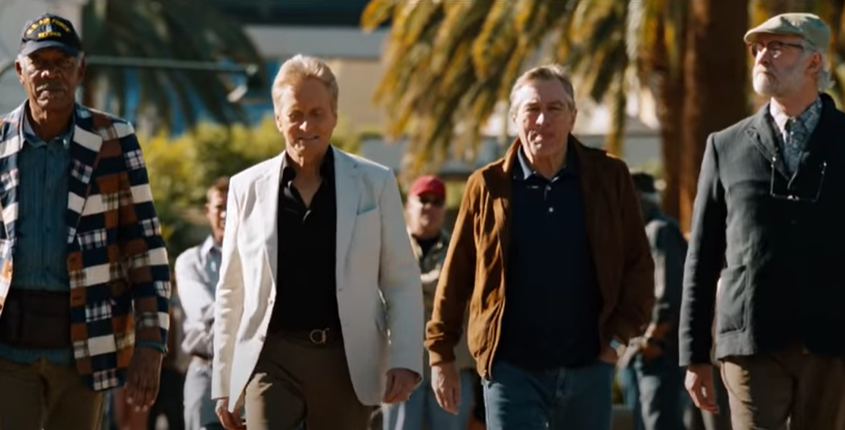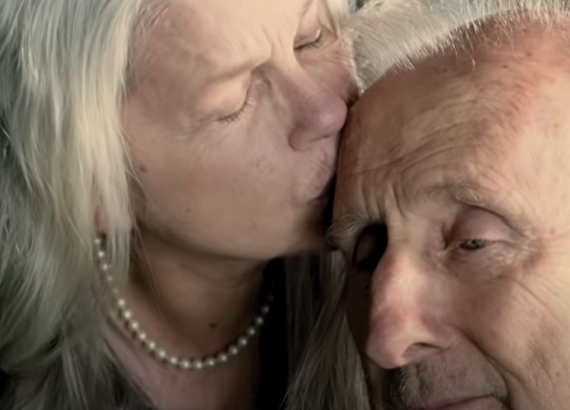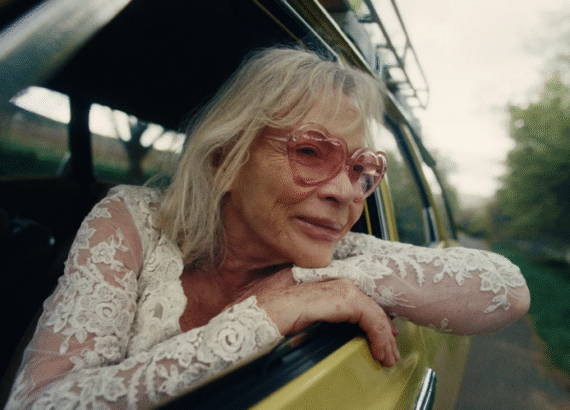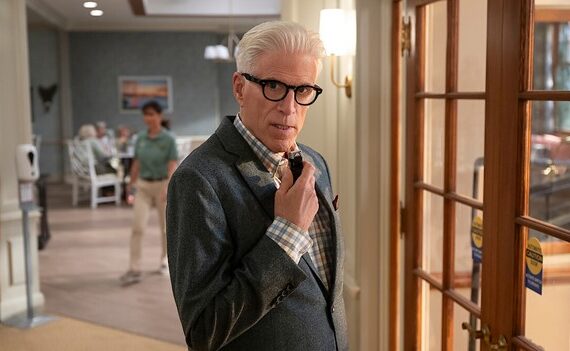POST #3
Romping in Vegas: How Stories Can Impact Your Health and Longevity

Living in a society that uncritically accepts the denigration of aging and elderhood can be like living with polluted air. Polluted air will affect your health and longevity. Polluted perceptions of older adulthood can affect your emotional and physical health as well. Such perceptions of older adulthood are prevalent in the stories presented to us on TV and in films.
Researchers have long been trying to show a correlation between what we watch in movies and on TV and our attitudes about older adults. In the early eighties, Dr. George Gerbner and three other researchers, all at The Annenberg School of Communications, University of Pennsylvania, conducted some of the earliest research on this. They found a strong correlation between the amount of television watched and the tendency of viewers to perceive old people in negative and unfavorable terms.
In the 2000s, Dr. Becca Levy conducted prodigious research on the effect that internalized ageism has on one’s health and longevity. Internalizing, or “breathing in” ageism refers to the inclination to take in attitudes and prejudices about aging and elderhood without even knowing that you are doing so. While you may spot and react to the overt and blatant forms of ageist prejudice, there are more subtle forms of culturally accepted ageism that surround us every day. For example, countless ads entice us with products that “retard aging”. The content of these ads usually also refers to “youthful” as a way to strengthen the product’s appeal. Most of these ads could simply be reworded to refer to health or vitality without any reference to youth or aging—and still accomplish their purpose. But the societally accepted distaste and fear of aging fuels the language that ad creators use, and the ads cyclically reinforce the distaste and fear.
What if we just want to enjoy the movie for what it is and have a good laugh as we watch four older guys have a good time in Vegas? You could do that, but you might want to retain an awareness of the subtext.
These more subtle forms of ageism are also prevalent in the movies we watch. What may seem like a wholesome treatment of older adults in a movie will, once you begin to look more closely, turn out to be an understated kind of ageism.
For an example of this, let’s examine a popular film of a few years ago, Last Vegas. In this film, a group of older men who have been friends since they were kids, gather in Las Vegas to celebrate the marriage of one of them to a much younger woman. While there, they romp like frat boys, reveling in the raunchiness that Vegas is known for.
The film appeals to most movie viewers as a hearty comedy–older guys living it up like younger versions of themselves in spite of their older bodies. So where is the inherent ageism in this? It resides in how the film implicitly measures fun and comradery through the eyes and minds of youthfulness. The comedy in the film depends on the juxtaposition of oldness and youth—four older guys having a raucously fun time in the sea of youth that surrounds them.
This could be seen as a “so what?” What if we just want to enjoy the movie for what it is and have a good laugh as we watch four older guys have a good time in Vegas? You could do that, but you might want to retain an awareness of the subtext. Comedy can mask underlying “-isms”. Look a little deeper at Last Vegas and you might see: “Oldness is cute. It’s cute because oldsters are ‘out of it’–out of what our culture thinks of as mainstream—to be young, healthy, and vigorous.”
This perspective conceals a subconscious–and therefore unchallenged–view that minimizes elderhood when it is placed next to youthfulness. A healthier view would recognize that growing into elderhood has its own richness and value—that it has a vitality and energy independent of the equally valid vitality and energy exuding from younger individuals. One kind of life energy is not better than the other; they are simply different.
Recognizing and maintaining this perspective will shield you from internalizing a derogatory view of elderhood. It will also contribute to your health and longevity.
– Jim Vanden Bosch




